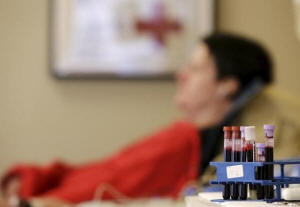|
Florida has been
investigating four possible cases of local transmission in
Miami-Dade County and Broward County. It is the first U.S. state
to report cases that may not be related to travel to other
countries with active outbreaks.
Zika has struck hardest in Brazil, where the outbreak was first
detected last year, and has since spread rapidly through the
Americas. The virus can cause a rare birth defect, microcephaly,
in newborns whose mothers have been infected, and is believed to
be linked to Guillain-Barre syndrome in adults.
Zika most commonly infects people via mosquito bite. But reports
of the virus being transmitted through sex and blood
transfusions has prompted public health officials to recommend
additional precautions for sexual partners and blood banks.
In a statement posted online on Wednesday, the FDA said blood
centers in the two Florida counties should stop collecting blood
until they can test each unit or put in place technology that
can kill pathogens in the blood.
The FDA also recommended that nearby counties implement the same
measures as it moves to prevent transmission of the virus
through the blood supply.
OneBlood, Florida's biggest blood collection center, said it
will begin testing all of its collections for Zika virus,
effective July 29, using an investigational screening test and
that it is working as quickly as possible to comply with the
FDA's request.
The FDA has authorized the emergency use of several
investigational Zika screening tests, including products made by
Hologic Inc and Roche Holding AG.
The agency has also approved a pathogen inactivation technology
made by Cerus Corp that kills the virus in blood platelets and
plasma. The company is conducting clinical trials to show it can
also kill pathogens in red blood cells.
The United States uses roughly 12 million units of red cells,
four million plasma units and two million units of platelets a
year.
Unlike oxygen-carrying red blood cells, which can be kept for 42
days in a refrigerator, or plasma, which keeps for a year if
frozen, platelets have a shelf life of just four to seven days.
Platelets in general tend to be scarce because there are fewer
donors. It can take up to two hours to extract platelets using
an apheresis machine, said Dr. Richard Benjamin, chief medical
officer for Cerus. And because of their short shelf life
hospitals typically do not keep much surplus.
It can be hard to source them from elsewhere, too. By the time
they are flown from one place to another they may only have two
days of life left.
"All we need is a few more Zika hotspots and there will be a
shortage of platelets across the country," Benjamin said.
The FDA's action follows Florida's announcement on Wednesday
that it had identified two additional Zika cases - one more in
each county - that were not related to travel to an area where
the virus is being transmitted.
A CDC spokesman said on Wednesday that "evidence is mounting to
suggest local transmission via mosquitoes" in South Florida,
noting that the cases fit transmission patterns seen with prior
mosquito-borne outbreaks such as Chikungunya.
FDA said it will continue to monitor the situation in Florida in
cooperation with the CDC and state public health authorities and
provide updates as additional information becomes available.
(Reporting by Julie Steenhuysen; Editing by Bernard Orr)
[© 2016 Thomson Reuters. All rights
reserved.] Copyright 2016 Reuters. All rights reserved. This material may not be published,
broadcast, rewritten or redistributed.
 |
|






